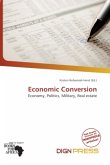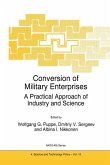Recent political developments imply a much larger part of our economy will be devoted to civilian enterprises and a much smaller part to military work than in the recent past. This book examines the impact on the technical community, particularly engineers, of the conversion of defense-related industries to civilian-oriented activities. Currently about one third of all engineers work on military projects, and four fifths of all federal research and development is defense-related. The essays in this volume are by academic researchers (in disciplines ranging from psychology and philosophy to economics and engineering), engineers and managers from companies that work on military projects, and representatives of some of the professional societies of engineers. They address the questions: What will be the impact on the technical community of the economic conversion? What effect will the technical community have on the conversion? What actions can one take to minimize the destructive and maximize the constructive effects of the conversion? What are the implications for engineering education, professional work, and public policy?
Bitte wählen Sie Ihr Anliegen aus.
Rechnungen
Retourenschein anfordern
Bestellstatus
Storno








